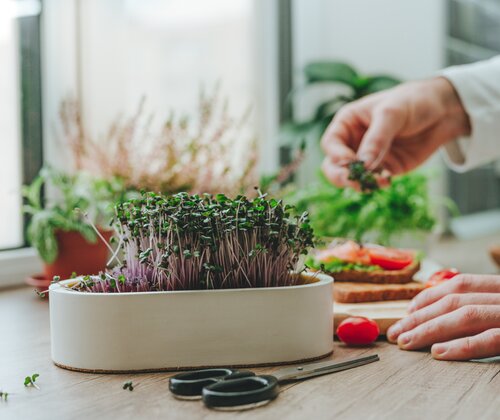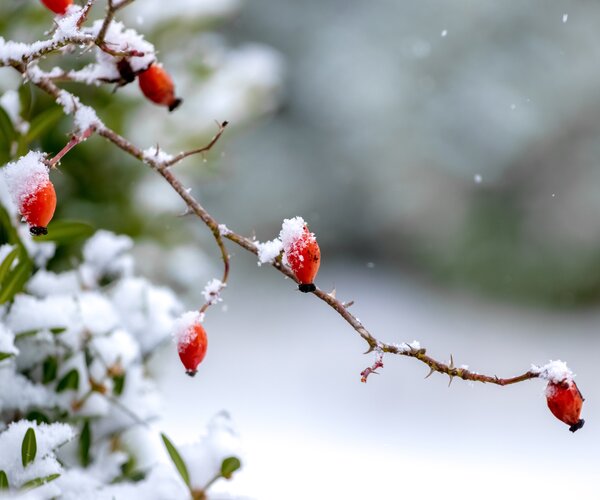
Wild herbs in winter – natural treasures for health and well-being
Whether rose hips, ivy or spruce – they are all little powerhouses that accompany us through the cold months. Discover how these plants can help you get through the cold season in good health and relaxed.

In der kalten Jahreszeit, wenn die Natur still und karg erscheint, liegt dennoch ein Schatz vor unserer Haustür verborgen. Wildkräuter und Pflanzen, die den Winter überdauern, können nicht nur unsere Gesundheit unterstützen, sondern auch unser Wohlbefinden steigern.
In der kalten Jahreszeit, wenn die Natur still und karg erscheint, liegt dennoch ein Schatz vor unserer Haustür verborgen. Wildkräuter und Pflanzen, die den Winter überdauern, können nicht nur unsere Gesundheit unterstützen, sondern auch unser Wohlbefinden steigern.
Rosehip – a vitamin C bomb for cold days
The rose hip (Rosa canina) is a real immune system booster! Its bright red to orange-coloured fruits offer us the highest vitamin C content in winter, which can be found in addition to sea buckthorn in our local natural environment. The thorny dog rose bush grows to a height of one to three metres and can be found on the edges of paths and in forests. The fruits are called rose hips and are elliptical-elongated, 1-2 cm in size, and bright red or orange in colour.
In addition to vitamins, rose hips also contain important minerals and antioxidants that strengthen our immune system and protect us from colds. Rosehip tea is a wonderful home remedy, especially in the cold months.
All you need for a fortifying rose hip tea, which is hardly comparable to the fruit teas you can buy, is three fresh or dried fruits, halved. Pour 250 ml of boiling water over them, cover and leave to steep for ten minutes. This tea not only warms you from the inside, but also helps with urinary and kidney stones, rheumatism and osteoarthritis.
Special tip: you can also make a delicious and effective tea from rosehip seeds. This tea has a slight vanilla flavour and is known for its blood-purifying and diuretic properties. Simply soak two tablespoons of fresh or dried seeds in 500 ml of water overnight and boil for 30 minutes the next day. Strain and enjoy!
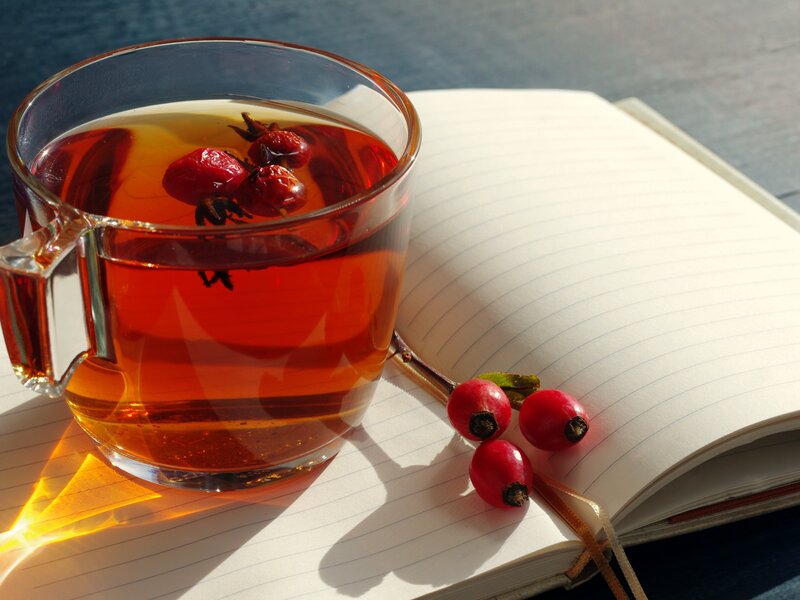
Ivy – the natural household and cough remedy
Ivy (Hedera helix) is an evergreen, robust plant that even in winter bears green leaves. Ivy leaves are characteristically palmate, dark green and have striking white veins. But did you know that ivy is not only useful as an ornamental plant, but also in the home and for health complaints? Thanks to its saponins, which have natural cleansing properties, ivy can be used as an environmentally friendly detergent.
To use in your laundry, simply tear a handful of fresh ivy leaves roughly, put them in a laundry net or a sock, close it well and wash it with your laundry (boil wash or coloureds) at 40 °C or higher. A tablespoon of washing soda in the main rinsing chamber enhances the washing result and has a water-softening effect.
But ivy also has a lot to offer in terms of health. It is used in cough syrups for its expectorant effect. However, the leaves and especially the berries are poisonous and should only be used externally or in safely processed products.
Spruce – relaxation and strength for body and mind
The common spruce (Picea abies) is much more than just a popular Christmas tree. With its high essential oil content, the spruce can help us with colds, muscle tension and nervous restlessness. A spruce bath is the perfect remedy for relaxation and regeneration after a long, cold day.
For a relaxing spruce bath, you need three handfuls of fresh spruce branches. These are chopped up, boiled with two litres of water, covered and allowed to steep for ten minutes. The liquid is then strained and added to the bath water. After a 15-minute relaxation bath, you should rest for about an hour, covered up – perfect for a little time out!
Alternatively, you can also use fir needle oil. A few drops of essential oil in the bathwater have a similarly beneficial effect when added to the water with milk or salt as an emulsifier.
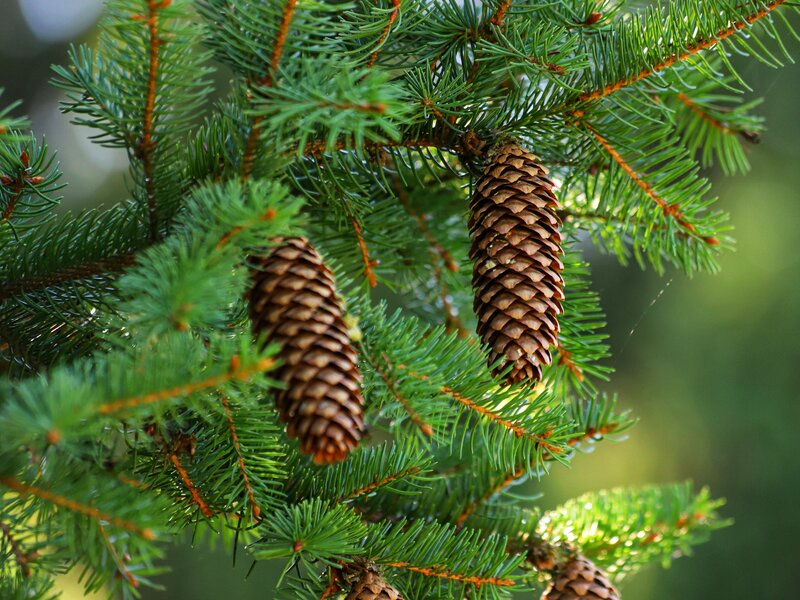
Even in the coldest months, nature offers us a wide range of plants that can support our well-being. Try it out and let yourself be inspired by the power of wild herbs. We wish you a relaxing winter!
Even in the coldest months, nature offers us a wide range of plants that can support our well-being. Try it out and let yourself be inspired by the power of wild herbs. We wish you a relaxing winter!

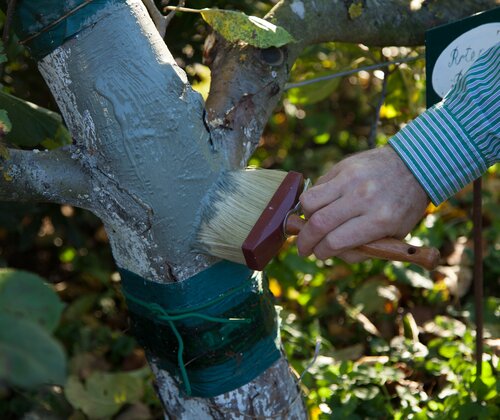
The cold season poses major challenges for trees, as low temperatures, frost and external influences can damage the bark. A particularly effective method of protecting trees from these influences is to use a special tree paint with EM ceramics. This natural paint not only supports bark care, but also provides effective protection against weather damage and pests.
